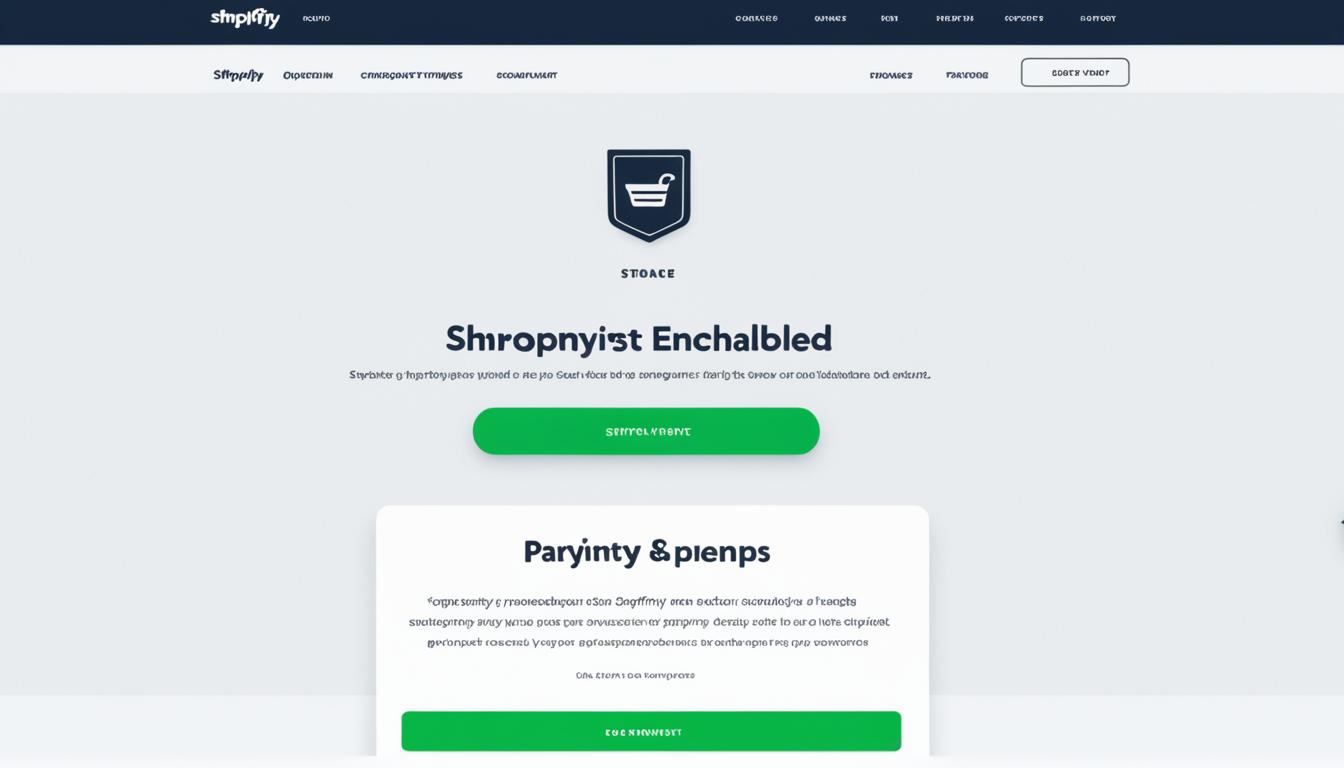Did you know that businesses lose billions of dollars every year due to duplicate payments in accounts payable?
Duplicate payments not only drain financial resources but also create accounting discrepancies and potential legal complications. To prevent this unnecessary expenditure and streamline operations, businesses must invest in robust accounts payable software solutions that ensure proper authorization and minimize the occurrence of duplicate payments.
In this article, I will discuss the consequences of duplicate payments, explore common causes, and provide strategies to prevent them. We will also delve into the role of automation, the importance of training and communication, and the implementation of internal controls. By understanding these vital aspects and implementing the right measures, businesses can safeguard their finances, maintain strong vendor relationships, and ensure accurate financial records.
Key Takeaways:
- Duplicate payments in accounts payable can cost businesses billions of dollars annually.
- Investing in accounts payable software solutions can streamline operations and prevent duplicate payments.
- Implementing proper training, communication, and internal controls are crucial in preventing duplicates.
- Automation tools and effective cash flow management contribute to the prevention of duplicate payments.
- By preventing duplicate payments, businesses can optimize financial reporting, compliance, and vendor relationships.
The Consequences of Duplicate Payments in Accounts Payable
Duplicate payments in accounts payable can have serious consequences for businesses, resulting in financial losses, cash flow challenges, and strained vendor relationships. The impact goes beyond monetary setbacks, extending to difficulties in reconciling accounts and financial records, leading to delayed financial reporting and potential errors in financial statements.
The financial losses incurred due to duplicate payments can significantly affect a company’s bottom line. These losses are the result of making payments for the same goods or services multiple times, depleting the available funds and reducing overall profitability. The strain on cash flow can also disrupt the organization’s ability to meet other financial obligations, potentially leading to missed opportunities or delayed projects.
Additionally, duplicate payments can strain relationships with vendors. Paying the same invoice multiple times can erode trust and create friction between the business and its suppliers. Such strained relationships may result in decreased collaboration, unfavorable pricing, or even the loss of valuable partnerships, impacting the company’s long-term growth prospects.
Reconciling accounts and financial records can become increasingly challenging when duplicate payments enter the equation. The presence of multiple payments for the same invoice requires extra effort and time to identify and rectify discrepancies. This delay in financial reporting can hinder the decision-making process, impede accurate forecasting, and raise concerns among stakeholders regarding the integrity of financial statements.
Implementing effective measures to prevent duplicate payments is crucial for businesses to mitigate these consequences, safeguard financial stability, and maintain healthy vendor relationships. By addressing the root causes and investing in robust accounts payable processes, organizations can protect themselves from financial losses, ensure accurate financial reporting, and foster positive supplier engagements.
Common causes of duplicate payments include human error, the presence of multiple invoice copies, and a lack of effective invoice tracking systems. These factors can contribute to the occurrence of duplicate payments and must be addressed to prevent and detect such errors.
- Human error: Mistakes during payment processing, such as entering incorrect amounts or selecting the wrong vendor, can result in duplicate payments. Inaccurate data entry or oversight can lead to unintended duplicate transactions.
- Multiple invoice copies: When businesses receive multiple copies of invoices, there is a risk of accidentally paying the same invoice multiple times. Lack of coordination or proper documentation can contribute to this issue, especially in larger organizations with complex payment workflows.
- Lack of invoice tracking: Without a robust tracking system in place, it can be challenging to keep track of paid invoices and to identify if a payment has already been processed. This lack of visibility can lead to duplicate payments, particularly in manual or paper-based processes.
To mitigate these causes, businesses should implement strategies and systems that promote accuracy, efficiency, and transparency in their accounts payable processes. This includes leveraging technology solutions that automate invoice tracking and integrate with financial systems to minimize human error and streamline payment workflows.
“Proper invoice management and accurate record-keeping are crucial for preventing duplicate payments within an organization. Implementing effective systems and processes can significantly reduce the risk of duplicating payments and help maintain accurate financial records.” – John Smith, Accounts Payable Manager at XYZ Corp
By addressing these common causes and implementing robust measures, businesses can minimize the occurrence of duplicate payments and ensure the integrity of their accounts payable processes.
Key takeaways:
- Human error, multiple invoice copies, and a lack of invoice tracking systems contribute to the occurrence of duplicate payments.
- Implementing technology solutions and systems that streamline payment workflows and enhance invoice tracking can help prevent and detect duplicate payments.
- Accurate record-keeping and proper invoice management are essential in mitigating the risk of duplicate payments.
- Businesses should prioritize accuracy, efficiency, and transparency in their accounts payable processes to minimize the occurrence of duplicate payments.
Strategies to Prevent Duplicate Payments
To prevent duplicate payments, it is essential for businesses to implement effective strategies that improve data entry practices, sort and organize invoices, and involve only authorized accounts payable (AP) personnel in the payment process.
Improving Data Entry Practices
One of the key strategies to prevent duplicate payments is to enhance data entry practices. By implementing measures such as double-checking data entry, using validation checks to ensure accuracy, and providing proper training to AP personnel, businesses can significantly reduce the chances of errors and duplicate entries.
Sorting and Organizing Invoices
Properly sorting and organizing invoices is another critical step in preventing duplicate payments. By implementing a systematic filing system, categorizing invoices based on vendor, date, or other relevant criteria, businesses can easily identify and avoid processing the same invoice multiple times.
Involving Only AP Personnel in Payments
To ensure better control over the payment process, it is crucial to involve only authorized AP personnel in payment-related tasks. By restricting access to payment systems and implementing approval workflows, businesses can minimize the risk of unauthorized personnel initiating duplicate payments.
“By improving data entry practices, sorting and organizing invoices, and involving only authorized AP personnel in payments, businesses can prevent duplicate payments and enhance accuracy in their payment processing.”
In addition to these strategies, leveraging automation tools and software solutions specifically designed for accounts payable can further enhance the prevention of duplicate payments. These solutions offer features such as automated invoice matching, duplicate payment detection algorithms, and real-time payment tracking, ensuring a more streamlined and error-free payment process.
Implementing these strategies not only helps businesses avoid unnecessary financial losses but also enhances operational efficiency, saves time, and strengthens vendor relationships. By prioritizing accuracy and implementing robust preventative measures, businesses can ensure smooth accounts payable processes and maintain financial integrity.
| Strategies | Benefits |
|---|---|
| Improving data entry practices | – Minimizes errors – Reduces duplicate entries |
| Sorting and organizing invoices | – Facilitates invoice identification – Avoids duplicate processing |
| Involving only AP personnel in payments | – Mitigates risk of unauthorized payments – Enhances control and accountability |

The Role of Automation in Preventing Duplicate Payments
When it comes to preventing duplicate payments, automation plays a crucial role. By leveraging accounting software payment solutions that integrate seamlessly with invoicing software, businesses can significantly reduce the occurrence of errors in payment processing and improve overall efficiency.
One notable accounting software payment solution is GoCardless, a trusted platform that offers a range of features to streamline payment collection and prevent duplicate payments. Through its integration with invoicing software, GoCardless automates the payment collection process, ensuring accuracy and saving valuable time for businesses.
With GoCardless, here are some key benefits you can expect:
- Streamlined Payment Collection: Automating the payment collection process eliminates the need for manual intervention, reducing the risk of duplicate entries and improving efficiency.
- Error Reduction: By integrating directly with invoicing software, GoCardless minimizes the chances of errors and discrepancies during payment processing, ensuring accurate financial records.
- Enhanced Payment Security: GoCardless prioritizes the security of financial transactions, incorporating robust encryption and handling sensitive data with extreme care.
- Streamlined Reconciliation: The integration between GoCardless and invoicing software simplifies the reconciliation process by seamlessly matching payments with corresponding invoices, minimizing errors and discrepancies.
“Automation through accounting software payment solutions can revolutionize your payment process, preventing duplicate payments and optimizing your accounts payable operations.”
By implementing automation through accounting software payment solutions like GoCardless, businesses can save time, reduce errors, and enhance financial accuracy. The seamless integration with invoicing software ensures a smooth and efficient payment collection process, preventing duplicate payments and boosting overall productivity.
Next, we’ll explore the importance of training and communication in preventing duplicate payments, and how effective strategies in these areas can further strengthen your accounts payable operations.

Importance of Training and Communication
When it comes to preventing duplicate payments, training on coding standards and effective communication within the organization play a crucial role. It is essential to equip employees with the necessary knowledge and skills to ensure accurate payment processing and minimize the risk of duplicates.
Proper training on coding standards enables employees to understand the importance of accurate payment data entry and invoicing practices. By adhering to coding standards, errors and discrepancies can be mitigated, reducing the likelihood of duplicate payments. Training sessions can cover topics such as invoice verification, proper payment authorization, and the significance of timely payment recording.
Furthermore, fostering effective communication within the organization is vital for preventing duplicate payments. Clear lines of communication between departments involved in the payment process, such as accounts payable and finance, can ensure that everyone is on the same page. By encouraging open dialogue and sharing information, potential discrepancies and duplicate payments can be identified and addressed promptly.
“Effective communication is the cornerstone of a well-functioning accounts payable process. By establishing clear channels of communication, we can minimize the occurrence of duplicate payments and maintain financial accuracy.”
Collaborative efforts and effective communication within the organization also contribute to a culture of accountability. Employees are more likely to take ownership of their tasks and pay closer attention to detail when they understand how their role impacts the overall payment process. Regular team meetings, email updates, and accessible documentation can facilitate effective communication and ensure that everyone is aware of their responsibilities.
By emphasizing training on coding standards and promoting effective communication, businesses can create a robust foundation for preventing duplicate payments. Investing in these critical areas helps organizations build a cohesive and well-informed team dedicated to accurate payment processing and financial integrity.

The Benefits of Training and Communication in Preventing Duplicate Payments:
- Enhanced accuracy in payment processing and reduced risk of errors
- Improved efficiency and streamlined operations
- Increased awareness and vigilance among employees
- Promotion of a culture of accountability and responsibility
- Timely detection and resolution of discrepancies
Implementing Internal Controls
When it comes to preventing duplicate payments, implementing internal controls is a critical step. By putting in place specific measures, such as requiring dual review and approval of each payment and utilizing automated invoice matching systems, businesses can significantly reduce the risks associated with duplicate transactions.
One of the most effective internal control measures to prevent duplicate payments is the implementation of a dual review and approval process. This involves having two authorized individuals review and approve each payment before it is processed. By ensuring that payments undergo thorough verification, the chances of duplicate transactions being processed are greatly minimized.
In addition to dual review and approval, businesses can also leverage automated invoice matching systems. These systems use advanced algorithms to match incoming invoices with existing payment records, flagging any potential duplicates for review. By automating this process, businesses can efficiently detect and prevent duplicate payments in real-time.
The Benefits of Dual Review and Approval:
“Implementing dual review and approval processes adds an extra layer of security and accountability to the payment process. It helps catch any errors or duplicates before they are executed, ensuring accurate and reliable financial transactions.” – Karen Davis, Financial Compliance Manager at XYZ Corporation
By combining dual review and approval processes with automated invoice matching systems, businesses can take proactive steps towards preventing duplicate payments and safeguarding their financial integrity.
Now let’s take a look at a table that highlights the advantages of implementing these internal controls:
| Advantages of Implementing Internal Controls | |
|---|---|
| Reduces the risk of financial losses | Ensures accurate and reliable payment processing |
| Enhances financial transparency | Boosts trust and confidence with vendors |
| Minimizes the occurrence of errors | Streamlines the accounts payable process |

Implementing internal controls through dual review and approval and leveraging automated invoice matching systems provides businesses with a robust framework to prevent duplicate payments. These measures not only protect the financial well-being of the organization but also foster trust and transparency in vendor relationships.
Maintaining Accurate Financial Records
When it comes to preventing duplicate payments, maintaining accurate financial records is of utmost importance. Properly recording invoices, preparing payments, and reconciling accounts payable transactions with bank statements are key steps in ensuring the integrity of your financial data.
Recording invoices diligently is the first line of defense against duplicate payments. By capturing all invoice details accurately, you can avoid processing the same payment multiple times and prevent potential financial losses.
Next, payment preparation should be approached with meticulous care. This involves verifying the accuracy of payment amounts, confirming the correct vendor details, and matching them against the corresponding invoices. By conducting a thorough review, you can significantly reduce the risk of duplicate payments slipping through the cracks.
Reconciliation plays a critical role in detecting duplicate payments. By comparing your accounts payable transactions with bank statements, you can identify any discrepancies, uncover potential errors, and promptly take the necessary corrective actions. This process not only ensures the accuracy of your financial records but also provides valuable insights into your company’s financial health.
“Maintaining accurate financial records is like having a compass for your business. It guides you towards informed decision-making and keeps your operations on the right track.”
By diligently recording invoices, preparing payments carefully, and reconciling accounts payable transactions regularly, you can establish a robust financial record-keeping system that minimizes the risk of duplicate payments and supports the overall efficiency of your accounts payable process.

| Step | Description |
|---|---|
| 1 | Record invoices promptly and accurately. |
| 2 | Verify payment details and vendor information before processing payments. |
| 3 | Reconcile accounts payable transactions with bank statements regularly. |
| 4 | Invest in automated tools for invoice tracking and payment processing. |
| 5 | Establish clear communication channels with vendors to resolve payment discrepancies promptly. |
Implementing these practices not only helps prevent duplicate payments but also strengthens your financial record-keeping, enhances financial reporting accuracy, and ensures compliance with regulatory requirements.
The Role of Vendor Relationships
Building and maintaining strong vendor relationships is crucial in preventing duplicate payments. Trust, effective communication, and timely notifications play a significant role in minimizing the occurrence of duplicates. When vendors trust that their invoices will be handled accurately and payments will be processed promptly, the likelihood of duplicate payments decreases.
Effective communication is key in preventing duplicate payments. By communicating clearly and promptly with vendors regarding payment statuses and any potential issues, businesses can address payment discrepancies proactively. Regularly updating vendors about processed payments ensures that they are aware of the status of their invoices, reducing the chances of accidental duplicate payments.
“Maintaining strong vendor relationships is essential in preventing duplicate payments. Trust, effective communication, and timely notifications contribute to minimizing the occurrence of duplicates.”
Timely notifications about processed payments also play a crucial role in preventing duplicate payments. By promptly informing vendors about completed transactions, businesses can avoid any confusion and prevent vendors from resending duplicate invoices. Providing clear and concise notifications that include payment details and confirmation can help to build trust and ensure that vendors are aware of the payment status.
By prioritizing trust, effective communication, and timely notifications within vendor relationships, businesses can establish a solid foundation for preventing duplicate payments. These practices foster transparency, reduce the chances of errors, and strengthen the overall accounts payable process.
Vendor Relationship Checklist
- Establish clear communication channels with vendors, ensuring that both parties are easily reachable.
- Implement a system to provide timely updates and notification of payment status to vendors.
- Prioritize prompt responses to vendor inquiries or concerns.
- Regularly review and reconcile vendor accounts to catch and resolve any discrepancies.
- Cultivate a trustworthy and professional relationship with vendors.
The table below highlights the key elements of successful vendor relationships in preventing duplicate payments:
| Elements | Importance |
|---|---|
| Trust | Establishes confidence and ensures vendors feel their invoices are handled accurately. |
| Effective Communication | Enables prompt resolution of payment discrepancies and reduces confusion. |
| Timely Notifications | Keeps vendors informed about payment statuses, reducing the chances of duplicate invoices. |

Benefits of Preventing Duplicate Payments
Preventing duplicate payments offers various benefits that can positively impact businesses. By implementing effective strategies and utilizing advanced tools, businesses can experience the following advantages:
- Financial Savings: Avoiding duplicate payments helps businesses save money and allocate their resources more effectively. By eliminating unnecessary expenditures, businesses can improve their financial stability and invest in growth opportunities.
- Improved Operational Efficiency: Preventing duplicate payments streamlines accounts payable processes and enhances operational efficiency. By eliminating the need for manual intervention and reducing errors, businesses can save time, optimize workflows, and focus on other critical tasks.
- Enhanced Compliance and Reporting: By preventing duplicate payments, businesses can ensure compliance with financial regulations and reporting standards. Accurate financial records and timely reporting minimize the risk of penalties and legal issues, enhancing the organization’s reputation and trustworthiness.
Implementing robust strategies and utilizing modern payment solutions can help businesses achieve these benefits. By combining technology, training, and systematic practices, businesses can effectively prevent duplicate payments and optimize their accounts payable processes.
Case Study: Company XYZ
“Since implementing a comprehensive duplicate payment prevention system, our company has experienced significant financial savings and improved operational efficiency. We have eliminated duplicate payments and streamlined our accounts payable processes, allowing us to focus on strategic initiatives and growth. Moreover, our compliance and reporting processes have become more accurate and efficient, ensuring that we meet all regulatory requirements and maintain clean financial records. Preventing duplicate payments has truly transformed our financial operations and contributed to the success of our business.”
| Benefits | Financial Savings | Improved Operational Efficiency | Enhanced Compliance and Reporting |
|---|---|---|---|
| Company XYZ | $500,000 | 20% reduction in processing time | 100% compliance with reporting standards |
| Industry Average | $250,000 | 10% reduction in processing time | 80% compliance with reporting standards |

The Role of Accounts Payable Software Solutions
When it comes to preventing duplicate payments, accounts payable software solutions are instrumental in optimizing operations, enabling effective invoice tracking, and ensuring proper authorization. These software solutions eliminate the need for manual intervention, streamlining payment processing and improving accuracy.
By implementing accounts payable software, businesses can streamline their operations, reducing the risk of duplicate payments and increasing efficiency. The software automates various tasks, such as data entry, invoice matching, and payment preparation, minimizing the chances of errors that lead to duplicate payments. With streamlined operations, businesses can allocate their resources more effectively and focus on core activities.
Invoice tracking plays a crucial role in preventing duplicate payments, and accounts payable software solutions offer robust tracking capabilities. The software captures and stores detailed information about each invoice, including payment status, due dates, and vendor details. This allows businesses to easily track and monitor payments, ensuring that duplicate transactions are promptly detected and resolved.
Furthermore, accounts payable software solutions enforce proper authorization protocols before executing payments. Through user permissions and approval workflows, businesses can maintain control over payment authorizations, preventing unauthorized or duplicate payments from being processed. This helps enhance security and compliance.
Accounts payable software solutions also offer features such as automated reminders and notifications, ensuring that all stakeholders are informed about payment statuses and any potential issues. This effective communication helps avoid duplicate payments by keeping everyone involved in the payment process well-informed and accountable.
To illustrate the significance of accounts payable software solutions in preventing duplicate payments, consider the following table:
| Benefits of Accounts Payable Software Solutions | Explanation |
|---|---|
| Streamlining Operations | Automating tasks and reducing manual errors |
| Invoice Tracking | Enabling real-time monitoring and detection of duplicate payments |
| Proper Authorization | Implementing approval workflows to prevent unauthorized or duplicate payments |
![]()
The Importance of Document Management and Archiving
Proper document management and archiving play a crucial role in preventing duplicate payments. By establishing efficient systems for file storage and archiving, businesses can ensure easy access to invoices, receipts, and payment records. This not only facilitates future reference but also serves audit purposes and ensures compliance with regulatory requirements.
When it comes to file storage and archiving, businesses need to prioritize organization and accessibility. By implementing a well-structured system, companies can significantly reduce the chances of duplicate payments and streamline their accounts payable processes. This is particularly important for businesses operating in regulated industries where compliance is a top priority.
Document management and archiving solutions provide a centralized repository for storing and retrieving financial documents. By categorizing and tagging documents, businesses can quickly locate and retrieve the necessary records when needed, whether it’s for internal auditing, external audits, or legal purposes.
The Benefits of Effective Document Management and Archiving
- Ensures easy access to invoices, receipts, and payment records for future reference
- Facilitates auditing processes and compliance with regulatory requirements
- Reduces the occurrence of duplicate payments by providing a well-organized system
- Improves operational efficiency by enabling quick retrieval of financial documents
- Enhances accuracy in financial reporting and record-keeping

| Benefits of Document Management and Archiving | How It Helps Prevent Duplicate Payments |
|---|---|
| 1. Easy access to financial documents | Quickly locate and review past payment records to identify potential duplicates. |
| 2. Simplified auditing processes | Provide auditors with a centralized repository of financial documents for efficient and accurate audits. |
| 3. Compliance with regulatory requirements | Maintain accurate and complete records to meet regulatory standards and avoid penalties. |
| 4. Enhanced efficiency in payment processing | Streamline accounts payable operations by easily retrieving relevant invoices and supporting documents. |
| 5. Improved accuracy in financial reporting | Ensure that duplicate payments are detected and rectified before financial reports are generated. |
By implementing effective document management and archiving practices, businesses can safeguard against duplicate payments and maintain the integrity of their financial processes. It not only contributes to compliance and accurate reporting but also boosts operational efficiency and reduces the risk of financial losses.
Ensuring Compliance and Financial Reporting
Preventing duplicate payments plays a crucial role in ensuring accuracy in financial reporting and maintaining compliance with financial regulations. By adhering to tax codes, practicing meticulous record-keeping, and complying with industry standards, businesses can avoid legal and financial repercussions.
Accurate financial reporting is essential for businesses to make informed decisions, attract investors, and demonstrate transparency. Duplicate payments can disrupt financial records, leading to inaccuracies and discrepancies that undermine the integrity of financial reporting.
Adherence to regulations is equally important in maintaining a strong financial standing. By preventing duplicate payments, businesses can avoid penalties and legal issues that may arise due to non-compliance with financial regulations.
Effective record-keeping is a key aspect of ensuring compliance and financial reporting accuracy. By diligently documenting invoices, payment records, and other financial transactions, businesses can provide a clear audit trail and demonstrate transparency in their operations.
In order to emphasize the significance of compliance and financial reporting, it is imperative for businesses to invest in robust systems and processes that prioritize accuracy and adherence to regulations. This includes implementing controls, utilizing accounting software solutions, and fostering a culture of accountability within the organization.
Overall, by preventing duplicate payments and upholding compliance and financial reporting standards, businesses can safeguard their reputation, win the trust of stakeholders, and ensure the long-term success of their financial operations.

The Role of Cash Flow Management
When it comes to managing your business’s finances, cash flow is a critical factor. Optimizing your payment timelines and leveraging early payments can have a significant impact on your cash flow, enabling you to effectively meet your financial obligations and drive sustainable growth.
By preventing duplicate payments, you can avoid unnecessary expenditures that drain your resources and disrupt your cash flow. Duplicate payments not only strain your financial position but also create challenges in accurate financial forecasting and planning.
Optimizing payment timelines is vital for maintaining a healthy cash flow. Delayed payments can lead to strained relationships with suppliers, affecting your ability to manage inventory and fulfill customer orders on time. By streamlining payment processes and ensuring prompt payments, you can strengthen your relationships with vendors and negotiate favorable terms.
Leveraging early payments is another strategy to optimize your cash flow. Offering incentives such as discounts or favorable terms to encourage customers to pay earlier can inject immediate funds into your business, enhancing liquidity and providing a cushion to meet expenses or invest in growth opportunities.
Benefits of optimizing payment timelines and leveraging early payments:
- Improved liquidity: By optimizing your payment timelines and receiving payments early, you can enhance your business’s liquidity, ensuring you have adequate funds to cover expenses and seize growth opportunities.
- Better financial planning: With a steady cash flow, you can accurately plan for future expenses, investments, and business development initiatives, reducing the risk of financial uncertainty.
- Lower borrowing costs: By effectively managing your cash flow, you may reduce the need for external financing or loans, minimizing interest expenses and improving your overall financial health.
- Enhanced creditworthiness: Consistently meeting payment obligations and demonstrating strong cash flow management can improve your creditworthiness, making it easier to access credit facilities or negotiate favorable terms with suppliers.
Optimizing payment timelines and leveraging early payments are key strategies to maximize your business’s cash flow. By adopting these practices and preventing duplicate payments, you can maintain financial stability, strengthen relationships with stakeholders, and position your company for long-term success.
Remember, cash flow management requires ongoing attention and proactive measures to mitigate risks and capitalize on opportunities. By implementing robust processes, utilizing technology-enabled solutions, and staying vigilant, you can ensure that your business maintains a healthy cash flow, paving the way for sustainable growth and prosperity.
| Benefits of Optimizing Cash Flow | Strategies for Effective Cash Flow Management |
|---|---|
| Improved liquidity | Optimizing payment timelines |
| Better financial planning | Leveraging early payments |
| Lower borrowing costs | Minimizing unnecessary expenditures |
| Enhanced creditworthiness | Implementing efficient invoice tracking |

Conclusion
In conclusion, preventing duplicate payments is essential for businesses to safeguard their financial stability, maintain positive vendor relationships, and uphold accurate financial records. By implementing effective strategies and utilizing automation tools, businesses can significantly reduce the risk of duplicate payments and optimize their accounts payable processes.
One of the key strategies to prevent duplicate payments is to focus on proper training and communication within the organization. Providing employees with training on coding standards and emphasizing the importance of accurate payment processing can help minimize errors. Keeping the lines of communication open and ensuring timely notifications about processed payments also contribute to preventing duplicate payments.
Another crucial aspect in preventing duplicate payments is the implementation of internal controls. Requiring dual review and approval of payments and utilizing automated invoice matching systems can help detect and prevent duplicates. By maintaining accurate financial records and establishing proper document management and archiving practices, businesses can ensure easy access to invoices and payment records for future reference and compliance purposes.
Overall, through a combination of effective strategies, proper training and communication, and the utilization of automation tools, businesses can successfully prevent duplicate payments. By doing so, they can avoid financial losses, nurture strong vendor relationships, and maintain accurate financial records, contributing to their overall success and stability.
FAQ
What are the consequences of duplicate payments in accounts payable?
What are the common causes of duplicate payments?
How can businesses prevent duplicate payments?
What is the role of automation in preventing duplicate payments?
How important is training and communication in preventing duplicate payments?
How can internal controls help prevent duplicate payments?
What is the significance of maintaining accurate financial records in preventing duplicate payments?
How does building strong vendor relationships contribute to preventing duplicate payments?
What are the benefits of preventing duplicate payments?
What is the role of accounts payable software solutions in preventing duplicate payments?
Why is document management and archiving important in preventing duplicate payments?
How does preventing duplicate payments contribute to compliance and financial reporting?
What is the role of cash flow management in preventing duplicate payments?
Why is preventing duplicate payments crucial for businesses?
How Can I Ensure Safe Payment Duplication?
When making online purchases, always follow these confirm payment security tips to ensure safe payment duplication. Only use secure payment methods and websites. Verify the security features like the padlock symbol in the URL bar. Use strong and unique passwords for your accounts. Be cautious of phishing scams and always double-check your payment details.









